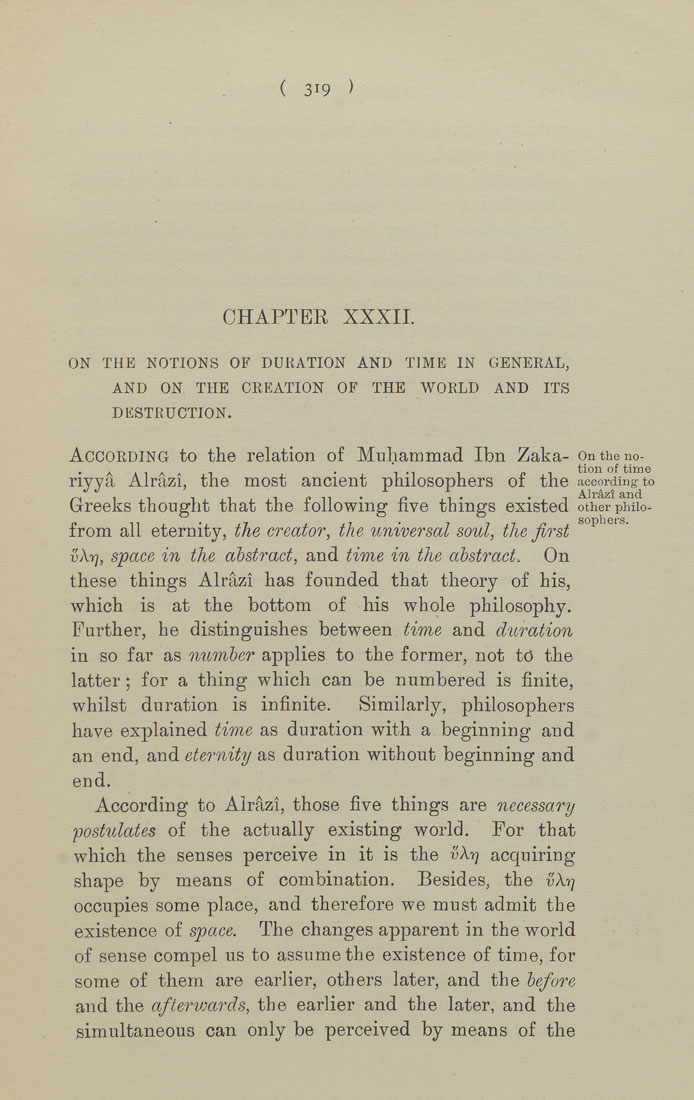Bīrūnī, Muḥammad ibn Aḥmad, Alberuni's India (v. 1)
(London : Kegan Paul, Trench, Trübner & Co., 1910.)
|
||
|
|
|
|
| Page 319 |

( 319 ) CHAPTER XXXIL ON THE NOTIONS OF DURATION AND TIME IN GENERAL, AND ON THE CREATION OF THE WORLD AND ITS DESTRUCTION. According to the relation of Muhammad Ibn Zaka- Ontheno- AAiA 1 • 1-1 PI ^^'^^^ "^ time riyya Alrazi, the most ancient philosophers of the according to Greeks thought that the following five things existed other pMio- from all eternity, the creator, the universal soul, the first vX.r], space in the abstract, and time in the abstract.. On these things Alrazi has founded that theory of his, which is at the bottom of his whole philosophy. Further, he distinguishes between time and duration in so far as number applies to the former, not to the latter ; for a thing which can be numbered is finite, whilst duration is infinite. Similarly, philosophers have explained time as duration with a beginning and an end, and eternity as duration without beginning and end. According to Alrazi, those five things are necessary postulates of the actually existing world. For that which the senses perceive in it is the vA^j acquiring shape by means of combination. Besides, the vXrj occupies some place, and therefore we must admit the existence of space. The changes apparent in the world of sense compel us to assume the existence of time, for some of them are earlier, others later, and the before and the afterwards, the earlier and the later, and the simultaneous can only be perceived by means of the |
| Page 319 |







